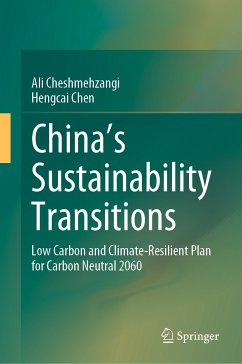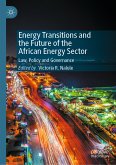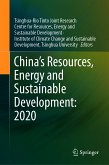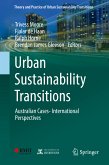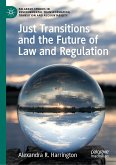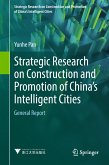Hengcai Chen: Research Associate in Urban Studies, at the Department of Architecture and Built Environment, University of Nottingham Ningbo China (UNNC).
About the book:
'China's Sustainability Transitions' considers promoting sustainable development from the perspectives of low carbon and climate resilience, and by reducing carbon emissions in different aspects of urban and regional development. As the world's largest emitter of carbon dioxide, China is continuously exploring a sustainable path to achieve the momentous goal of 2060 carbon neutrality. In addition, this book reviews and summarizes China's green development and predicts the transformation of China's carbon emission and energy structure before and after the peak of carbon emission in 2030. This book highlights typical methods of implementing and achieving low carbon development in light of China's practical situation, which helps resolve some of the problems that may arise in achieving the carbon neutral goal. Therefore, this book is suitable for the reference of scholars in low-carbon environment science, sustainable urban development, and other related fields. It also inspires China's medium and long-term sustainable development plans in the future.
The book reflects on the importance of low carbon transitions, achieving the foremost goals of sustainability and healthy and harmonious living environments. We recognise the next steps, particularly until 2030, will be very critical to fast-forward a healthy and sustainable transition that could reach the carbon neutrality plan of 2060.
Endorsements
'China's carbon neutrality goal, since its announcement, has drawn lots of attention on construction industry implementation. This book provides insights for future plans and determination of China's decarbonisation'. BRE-China
'This is the first published book on China's carbon neutrality plan, and we hope it can be appreciated by many stakeholders. This will be an asset for the future generations'. Aaron Golden - SELECT Consultants, UK
Dieser Download kann aus rechtlichen Gründen nur mit Rechnungsadresse in A, B, BG, CY, CZ, D, DK, EW, E, FIN, F, GR, HR, H, IRL, I, LT, L, LR, M, NL, PL, P, R, S, SLO, SK ausgeliefert werden.

